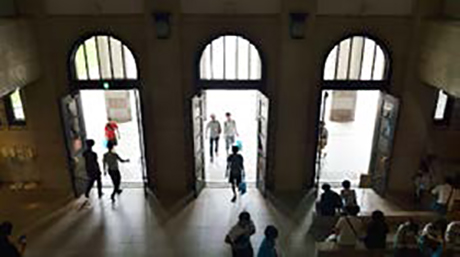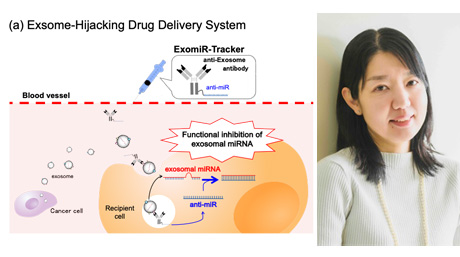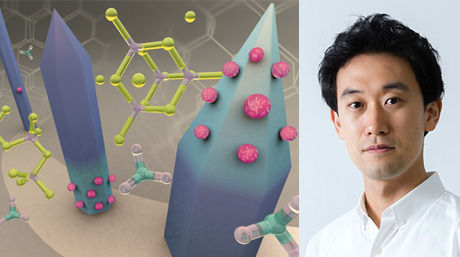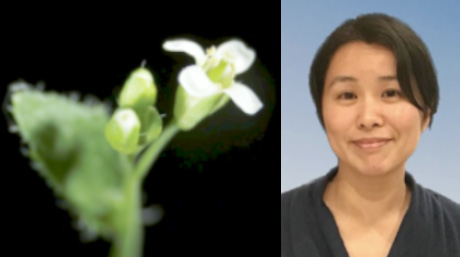Life Science and Technology News
【Labs spotlight】 Hongoh Laboratory
Molecular analysis of symbiotic system
The Department has a variety of laboratories for Life Science and Technology, in which cutting-edge innovative research is being undertaken not only in basic science and engineering but also in the areas of medicine, pharmacy, agriculture, and multidisciplinary sciences.
This "Spotlight" series features a laboratory from the Department and introduces you to the laboratory's research projects and outcomes. This time we focus on Hongoh Laboratory.
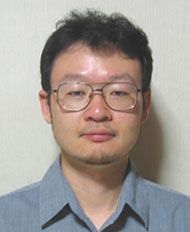
Areas of Supervision
Primary/Life Science and Technology
Professor Yuichi Hongoh![]()
| Degree | PhD 2000, The University of Tokyo |
|---|---|
| Areas of Research | Microbial Ecology, Environmental Genomics. |
| Keywords | symbiosis, termite, gut bacteria, single-cell genomics. |
| Website | Hongoh Lab |
Research interests
We focus on the termite gut ecosystem as an example of complex symbiotic systems found in various environments. Termites are social insects that feed only on dead plant matter and are notorious as destructive pests of woody buildings. Their ability to efficiently degrade the recalcitrant lignocellulose is, however, not attributable to their own, but mostly to the activities of the symbiotic gut microbiota.
The termite gut microbiota has been extensively studied for both basic and applied interests such as the evolution and ecology of the multi-layered symbiotic system, development of novel biofuel, and pest control. However, because the majority of the gut microorganisms are unculturable, the functions of individual microbial species and their interrelationships are mostly unknown. Our research team uses culture-independent methods, including single-cell genomics, to decipher this complicated symbiotic system.
Research findings
Selected publications
- [1] Takeuchi M., Kuwahara H., Murakami T., Takahashi K., Kajitani R., Toyoda A., Itoh T., Ohkuma M., Hongoh Y. Parallel reductive genome evolution in Desulfovibrio ectosymbionts independently acquired by Trichonympha protists in the termite gut. ISME J. 14, 2288-2301 (2020)
- [2] Merino N., Kawai M., Boyd E.S., Colman D.R., McGlynn S.E., Nealson K., Kurokawa K., Hongoh Y. Single-cell genomics of novel actinobacteria with the Wood-Ljungdahl pathway discovered in a serpentinizing system. Front. Microbiol. 11, e1031 (2020)
- [3] Utami Y.D., Kuwahara H., Igai K., Murakami T., Sugaya K., Morikawa T., Nagura Y., Yuki M., Deevong P., Inoue T., Kihara K., Lo N., Yamada A., Ohkuma M., Hongoh Y. Genome analyses of uncultured TG2/ZB3 bacteria in ‘Margulisbacteria’ specifically attached to ectosymbiotic spirochetes of protists in the termite gut. ISME J. 13, 455-467 (2019)
- [4] Murakami T., Segawa T., Takeuchi N., Sepulveda G.B., Labarca P., Kohshima S., Hongoh Y. Metagenomic analyses highlight the symbiotic association between the glacier stonefly Andiperla willinki and its bacterial gut community. Environ. Microbiol. 20, 4170–4183 (2018)
- [5] Kuwahara H., Yuki M., Izawa K., Ohkuma M., Hongoh Y. Genome of ‘Ca. Desulfovibrio trichonymphae’ in a tripartite symbiotic system within a protist cell in the termite gut. ISME J. 11, 766-776 (2017)
- [6] Ohkuma M., Noda S., Hattori S., Iida T., Yuki M., Starns D. Inoue J., Darby A.C., Hongoh Y. Acetogenesis from H2 plus CO2 and nitrogen fixation by an endosymbiotic spirochete of a termite-gut cellulolytic protist. Proc. Natl. Acad. Sci. U.S.A. 112, 10224-10230 (2015)
- [7] Sato T., Kuwahara H., Fujita K., Noda S., Kihara K., Yamada A., Ohkuma M., Hongoh Y. Intranuclear verrucomicrobial symbionts and evidence of lateral gene transfer to the host protist in the termite gut. ISME. J. 8, 1008-1019 (2014)
- [8] Hongoh Y. Toward the functional analysis of uncultivable, symbiotic microorganisms in the termite gut. Cell. Mol. Life Sci. 68, 1311-25 (2011)
- [9] Hongoh Y., Sharma V.K., Prakash T., Noda S., Toh H., Taylor T.D., Kudo T., Sakaki Y., Toyoda A., Hattori M., Ohkuma M. Genome of an endosymbiont coupling N2 fixation to cellulolysis within protist cells in termite gut. Science 322, 1108-1109 (2008)
- [10] Hongoh Y., Sharma V.K., Prakash T., Noda S., Taylor T.D, Kudo T., Sakaki Y., Toyoda A., Hattori M., Ohkuma M. Complete genome of the uncultured Termite Group 1 bacteria in a single host protist cell. Proc. Natl. Acad. Sci. U.S.A. 105, 5555-5560 (2008)
Contact
Professor Yuichi Hongoh
Room 706, W3 building, Ookayama campus
E-mail : yhongo@bio.titech.ac.jp
*Find more about the lab and the latest activities at the lab site![]() .
.
*May 1, 2025:Some of the content has been updated with the latest information.
